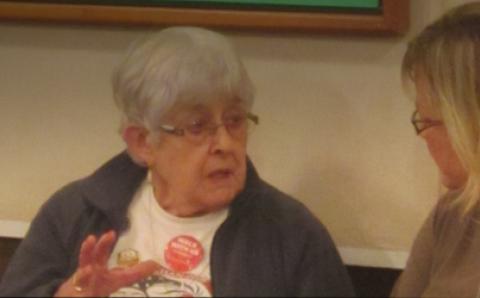Missions
Q In recent years I’ve gotten fed up with the commercialism of Christmas. How do I convey to my kids and grandkids that I care about them in ways other than the traditional gift-giving that is so central to our celebrations?
A Christmas is a wonderful time of year, and it’s central to our faith! God incarnate; God among us. One might argue that our entire way of life in the West, driven by capitalistic materialism, is completely unsustainable; it is a terrible irony that this holy season has become the focal point of it all. What better time to be counter-cultural?
Yet, as you note, when it comes to family, Christmas gets complex. I encourage you to articulate your concerns to your kids and allow them to communicate to their own children about possible shifts in your upcoming celebrations.
Focus on enjoying a good meal together. Sing some carols. Share the Christmas story. Tell about something God has done in your life over the past year. If you still want to incorporate some giving, consider gifts that are locally produced and sustainably made. Together create and wrap gifts that can be shared with those in need in your community and around the world. World Renew has some great resources for this.
Christmas is a season to celebrate. But it is also a subversive season in which a peasant child was born in the heart of an empire that embraced power. This child grew up to be a prophet whose critique of the status quo was sharp and whose love for the least among us went deep. He calls us to be lovers and prophets still. God is calling us into something new, beautiful, and holy, something that’s good for all people and the entire creation. That’s worthy of a celebration, if you ask me.
—Bryan Berghoef is a church planter in Washington, D.C., and is the author of Pub Theology: Beer, Conversation, and God.
Faith Formation
Q I “married into” the CRC three years ago after being raised Southern Baptist. Our church is a wonderful spiritual home, but I find it odd that our worship never includes testimonies. Why is that?
A You joined us at a good time, because we’re going through a transition, and maybe you are here “for such a time as this.”
Historically the CRC has shied away from testimonies because we felt that they put too much emphasis on glorifying the person instead of the Lord, and their tendency to become somewhat melodramatically emotional (at times) felt “cheesy” to us.
But now we’re realizing that our own manner of reading Scripture as the one coherent story of God’s faithfulness invites us to tell others how our life stories flow from God’s great story. Furthermore, we love the psalms, and they are filled with declarations like “One generation commends your works to another; they tell of your mighty acts” (Ps. 145:4). Those mighty acts are present in our own lives, and we need to tell them. So we’re beginning to “trial-and-error” our way into a Reformed way of including testimonies in our worship, small groups, youth groups, and other places.
Help us make this transition!
—Syd Hielema is a professor of religion and theology at Redeemer University College in Ancaster, Ontario.
Justice
Q In church, when I talk about justice for the poor I am labeled a “liberal,” and what I say is dismissed. How can I speak up for justice, as the Bible says, in this context?
A Your question is a common response to presentations I make in CRC circles about doing justice. It saddens and troubles me because it says more about a weak understanding of justice in our churches than it does about your actions. God is not a conservative or a liberal, and talking about justice is not a partisan action.
Labeling is often used to dismiss what challenges us. We tend to be comfortable with talk about helping the poor through charity but less comfortable with justice talk because it focuses on the causes of poverty, and things we enjoy may be part of the problem. A living wage for the working poor, for example, may mean fewer cheap prices in retail stores.
Your question also reflects an unhealthy polarization in our public life that has permeated our churches. Changing that mentality is part of doing justice. Christians should be able to avoid ideological labels and address issues on the basis of ethics rooted in Scripture. Cutting out all the texts dealing with justice for the poor in the Bible would leave holes, literally and spiritually. If justice is central to the Good News we preach, treating it as the hobby of a few “liberals” in church needs to change.
A few practical hints: It helps to start with a story that can’t be dismissed. Two voices or a small group may be taken more seriously. Ask your church leaders to make learning what the Bible says about justice a higher priority. Above all, persist.
—Kathy Vandergrift teaches public ethics to university students and advocates for the rights of children.








